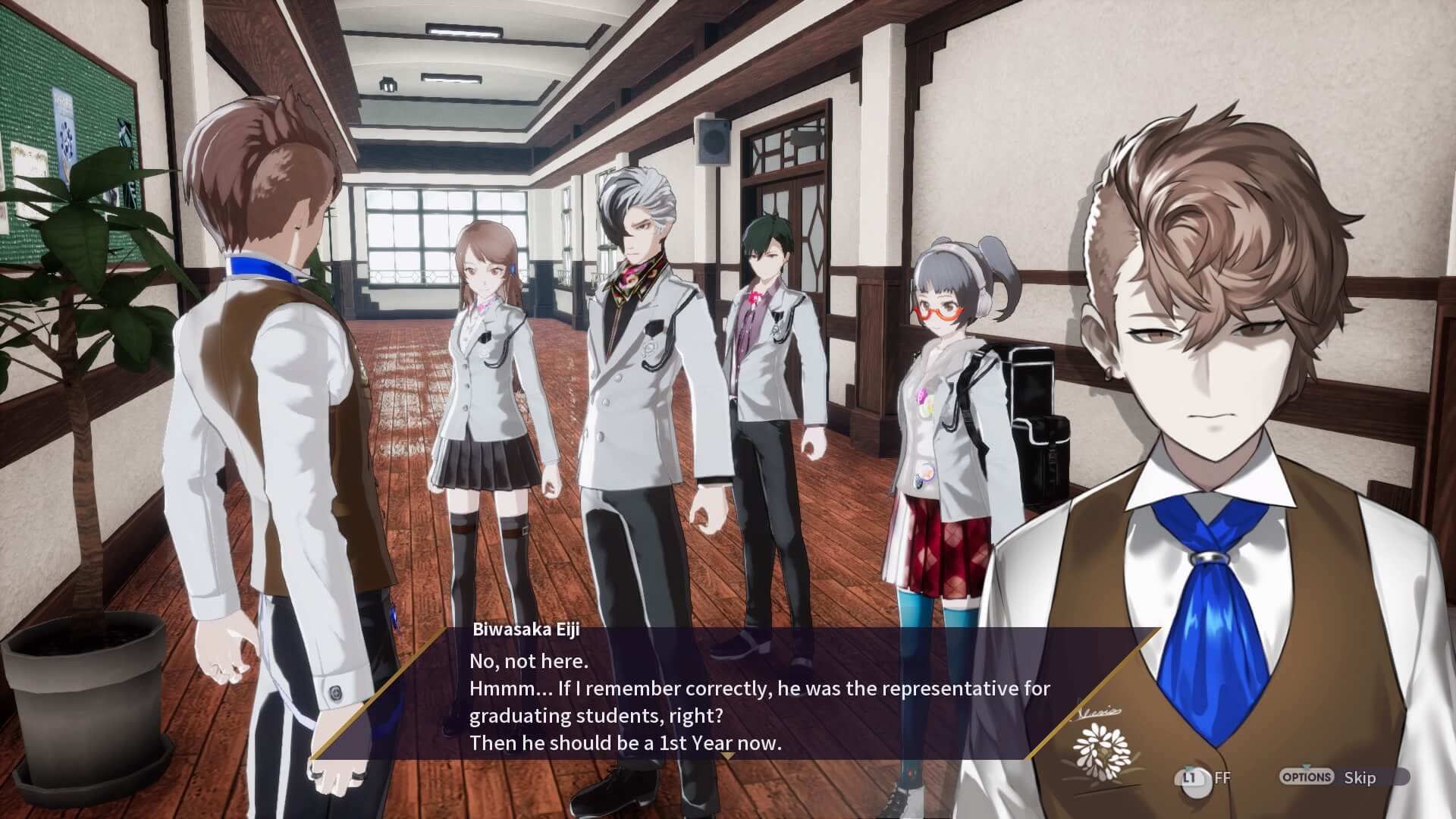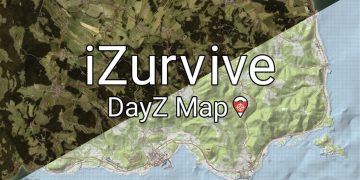Caligula Effect Overdose is the ground-up remake of a Persona-like that was destined to struggle when it released on the PS Vita in 2016 and only a few months before Persona 5. Yeah, this game was set to fail the first time around.
For the handful of people who played the original or watched the anime, this iteration allows you to play as a female protagonist, has new characters, new dungeons and another ending. For all the weebs out there, it’s Persona meets Angel Beats, but for everyone else, here’s a plot summary:
Our main character is at their high school opening ceremony notices some glitches in the matrix and rightfully freaks out. You then bump into a kind stranger who headbutts you to calm even if you picked the female protag. This guy, in this ascot, headbutts girls to calm them down, OK.
Turns out you’re trapped in a fake world called Mobius that allows anyone who struggled in the real world to live in their utopic high school life. The vocaloid creator of this world, Mu, won’t let anyone leave because that would undo the whole system and break the illusion.
Therefore, her Musicians, nice pun by the way game, brainwash everyone with J-pop to continuously relive a never-ending high school experience. If that doesn’t sound like Hell, I don’t what does.
Along the way, you meet the Co-creator of Mobius, Aria, who helps you out and unlocks edgy special powers to fight the brainwashed masses, called Digiheads. Your goal is to find Mu, have her send you back home and finding her musicians are your only lead. Naturally, since you and your friends, the aptly name Go Home Club, again nice pun, are numero uno on the brainwashing list.
I know I just slammed you with a ton of information, but this is all dropped on you in the first hour or so, It’s a rocky start pacing-wise. It’s a massive exposition dump along with 7 relevant characters introduce, so it’s bit overwhelming right off the bat

Granted it does smooth out once you start exploring this game’s dungeons, but a much slower start (like the newer Persona’s) would have benefited this narrative quite a bit.
Just looking at the premise, high school setting, genre, and hell even the art style, it’s easy to draw a lot of comparisons to Persona. While it may be easy to dismiss the game as a Persona clone, the writer for the first 3 Persona projects actually worked on Caligula Effect. Even the music was written by a former Megami Tensei composer, so the Atlus roots run deep.
The story is a late-bloomer. It’s a character-driven adventure that pits a Go-Home Club member against a Musician and you slowly learn about their traumas and why they’re trapped in Mobius. Unfortunately, it still feels a bit rushed, as concepts and characters aren’t expanded on as much as they should have been.
It took up until I got to the new route exclusive to Overdose for me to get fully invested. After the first few dungeons, you have the option to join the Musicians and act as a double agent. Not only do you learn more of the Musician’s backstory, but you also look at the whole goal of the Go Home Club in a different light.
After that I was loving the themes and commentary on utopia, responsibility, ruining other people’s happiness for your own gain, maybe some people are better off being stuck in that world. It all started falling into place because you’re looking critically at both sides because you know you’ll need to make an important decision later on.
With all that praise out of the way, the newly added content can clash a bit with the vanilla existing story and at times feels extremely forced, which is a shame because the Musicians are more interesting characters than the main cast and the reason the new ending is so engaging.
Unfortunately, the dialogue is in poor taste at times. If you’re the type of person who loves Reset Era and Tumblr, you will not like this game. I have thick skin for this kind of stuff, but even I’m like are these guys the anime third string of It’s Always Sunny.
On the gameplay side of things, it’s a standard JRPG dungeon crawler, but the unique elements come from the combat. It’s turned based combat with a heavy emphasis on timing. Moves have different start-ups and cool downs and you can string up to three actions at once.

Before you select an action, you can get a quick preview of what the enemy will do. This allows you to find an effective counter and you can even sync up an effective strategy with the rest of your party and Devil May Cry combo the crap out of enemies. But it’s incredibly rewarding when your whole party pulls off a crazy coordinated attack. Here’s the first boss.
This feature also allows you to see hitboxes, which allow you to guard or just get out of the way. It’s really refreshing in a JRPG when repositioning yourself in turn-based combat actually does something. Naturally, you can only see so far ahead and if you overcommit, you’ll be open for a wide chunk of time. But it’s still overpowered.
And it’s one of the reasons why Caligula Effect is a breeze. Normal mode is way too easy, so I stuck with Hard mode for most of the game. Hard mode is still easy with one major exception.
The problem is multi-hit attacks are ridiculous. They do about twice as much damage on hard mode, and they already hit hard to begin with. Even better is if they crit, every single hit is a critical on every character that takes damage. So, there are moments on hard mode when you blink and 3 of your party members get sent to the shadow realm with one attack. Albeit, I had some of my most fun moments trying to get out of those situations, but it still sucks
The rest is a cakewalk though. Your health and SP fully recover after every battle which takes the typical resource management challenge of the dungeon crawling out of the equation. Problem is it doesn’t replace it with anything else. You can grind individual enemies easily, so most of your battles will look like this.
To be fair, most enemies might literally be blind, so you can sidestep them easily. However, fighting higher level enemies lowers your accuracy to the point your attacks basically become a coin flip whether they hit or not. And if that one move you needed to knock your enemy in the air misses, your whole strategy goes down the drain. TLDR; don’t grind too much, just enough to stay within range of enemies.

Bosses are much more challenging, but you can wipe the floor with them using buffs and debuffs because they apply to the special attacks and can make short work of any one opponent.
The worst part of the game is the side quests. You’ll have to become superficial friends with NPCs that don’t have unique dialogue to become friends with other NPCs, ironically making it the most accurate representation of high school friendship in video games. Here’s the kicker you have to talk to them three times, no big deal, right? There over 500 of these fuckers. (math)
Also, you have to become friends with them to do their sidequest, which you can only accept one at a time. Take my word for it, skip this bullshit
Overdose was built from the ground-up the Unreal 4 engine and it doesn’t look like it. Personally, I would have preferred cleaning up some of the animations more than anything because it does look a little choppy. Although the character art during dialogue is top notch
The music of this game, on the other hand, is a saving grace on the presentation. I’m not a fan of J-Pop at all, but there’s enough variety to add life to the occasional tedious nature of the dungeon crawling. Plus, the dynamic music makes the transition between battles pretty seamless. If you’re looking for good tunes, Caligula Effect delivers.
Overdose is the kind of game that I see becoming a cult classic that can gradually build up a following for a series. It does enough new things to keep the turn-based combat fresh and has a great foundation for any sequels down the line. It has more than its fair share of flaws at almost every aspect, but underneath it all, you can make out a diamond in the rough that would really flourish given enough time and resources.
If you didn’t like it the first time around, there’s probably not enough to change your mind here. But if you have a Persona itch and have nothing to play, this game should fit the bill.
This review is based on a review copy of the game provided by NIS America


























































